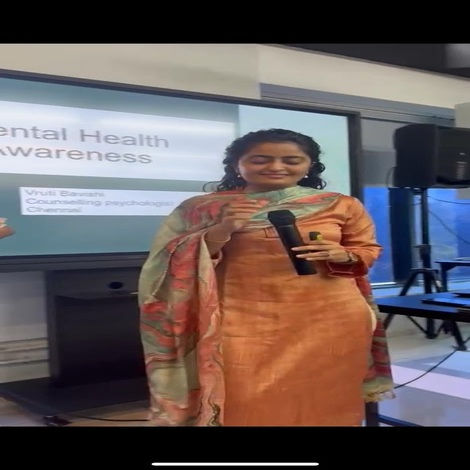Tips To Improve Mental Health
Boost your mental well-being with effective tips on stress management, self-care, healthy habits, and emotional support. Learn how to build resilience and maintain long-term mental health.

Written by Dr. J T Hema Pratima
Reviewed by Dr. Shaik Abdul Kalam MD (Physician)
Last updated on 13th Jan, 2026

In our fast-paced world, mental health is just as critical as physical health, yet it often doesn't receive the same level of daily attention. Mental health isn't merely the absence of mental illness; it's a state of well-being that allows you to cope with life's stresses, realize your abilities, learn and work well, and contribute to your community. Whether you're looking to manage everyday stress, boost your resilience, or simply feel more positive, small, consistent actions can make a profound difference. This guide offers 10 practical and powerful tips grounded in wellness research to help you build a stronger, healthier mind. We'll explore the deep connection between your body and brain, internal practices for emotional health, and the importance of your social world. Remember, investing in your mental health is the first step towards a more fulfilling life.
Foundational Pillars: The Body-Mind Connection
You can’t address mental well-being without considering the physical body. The two are inextricably linked, with each profoundly influencing the other.
Prioritise Quality Sleep for Brain Restoration
Sleep is non-negotiable for mental health. It's when your brain processes emotions, consolidates memories, and clears out toxins. Chronic sleep deprivation is strongly linked to increased rates of depression, anxiety, and stress. Aim for 7-9 hours of quality sleep per night. Establish a relaxing bedtime routine: power down screens an hour before bed, keep your room cool and dark, and avoid caffeine in the afternoon.
Move Your Body to Boost Your Mood
Exercise is a potent antidote to anxiety and depression. Physical activity releases endorphins—powerful chemicals in your brain that energise your spirits and make you feel good. It also reduces levels of the body's stress hormones, like adrenaline and cortisol. You don’t need to run a marathon; a daily 30-minute brisk walk, a dance session in your living room, or a yoga class can significantly improve mental health.
Nourish Your Brain with the Right Foods
Your brain needs a constant supply of fuel, and what you eat directly affects its structure and function. A diet rich in fruits, vegetables, whole grains, and lean protein can help boost your mood and energy levels. Omega-3 fatty acids (found in fish) and flavonoids (found in dark chocolate and berries) are particularly beneficial for brain health. Conversely, diets high in processed foods and refined sugars can impair brain function and worsen symptoms of mood disorders.
Cultivating a Healthy Mind
While the body provides the foundation, cultivating mental fitness requires intentional internal work.
The Power of Mindfulness and Meditation
Mindfulness is the practice of being fully present and engaged in the current moment without judgment. Studies show it can reduce anxiety and stress by calming the amygdala, the brain's fear center. Meditation is a formal practice of mindfulness. Even a few minutes a day can help you become more aware of your thoughts and feelings so they don't control you.
A Simple 5-Minute Breathing Exercise to Start
Sit comfortably and close your eyes.
Focus on your natural breath for one minute.
Inhale slowly for a count of four.
Hold your breath for a count of four.
Exhale slowly for a count of six.
Repeat this cycle for 5 minutes.
Challenge Negative Thought Patterns
Many of us are plagued by cognitive distortions—irrational, exaggerated thought patterns. A key coping strategy is to identify and challenge these thoughts. For example, if you think, "I completely failed that presentation," reframe it: "Parts of my presentation could have been better, but I delivered the key message effectively." This technique, central to Cognitive Behavioural Therapy (CBT), can fundamentally change your emotional response to events.
Practice Gratitude to Rewire Your Brain
Actively practising gratitude shifts your focus from what's lacking to what's abundant. This isn't about ignoring problems but about training your brain to notice the positive. Keep a gratitude journal and write down three specific things you are grateful for each day. This simple act has been shown to significantly increase long-term well-being by boosting dopamine and serotonin, the neurotransmitters responsible for happiness.
Consult Top Specialists
Building Your Support System
Humans are social creatures. Strong, healthy relationships are a cornerstone of good mental health.
The Importance of Connecting with Others
Make time for face-to-face connection with friends and family. Social interaction provides a sense of belonging, reduces feelings of loneliness, and offers emotional support. A simple conversation with a friend can calm your nervous system and reduce stress. Don’t underestimate the power of a good laugh with someone you care about.
Learn to Set Healthy Boundaries
Setting boundaries is a form of self-care. It involves being clear about your limits regarding your time, energy, and emotions to prevent feeling overwhelmed and resentful. This can mean saying "no" to extra responsibilities when you're stretched thin or limiting time with people who drain your energy. Protecting your peace is not selfish; it's essential.
Finding Purpose and Joy
A sense of purpose and engagement is a powerful driver of psychological health.
Engage in Activities That Bring You Flow
"Flow" is the state of being so immersed in an activity that you lose track of time. It could be gardening, painting, coding, playing an instrument, or a strategic game. Engaging in hobbies and activities that induce flow provides a break from negative thought patterns and contributes to a sense of accomplishment and joy.
Set Small, Achievable Goals
Working towards goals provides a sense of purpose and direction. Break down large, daunting objectives into small, manageable steps. The act of achieving these micro-goals releases dopamine, creating a positive feedback loop that motivates you to keep going. Celebrate these small wins—they matter.
When to Seek Professional Guidance?
While these daily habits for better mental health are powerful tools, they are not a substitute for professional help when needed. If your symptoms of sadness, anxiety, or stress are persistent, overwhelming, and interfering with your daily life, it is crucial to seek support. If your condition does not improve after trying these methods, consult a doctor online with Apollo24|7 for further evaluation. Therapists and counsellors can provide evidence-based treatments like CBT that offer tailored strategies for healing and growth.
Conclusion
Improving your mental health is a journey, not a destination. It involves consistent, daily practices that build resilience and foster well-being. Start by incorporating one or two tips from this guide into your routine—perhaps focusing on sleep hygiene or a short meditation practice. Be patient and compassionate with yourself. Some days will be easier than others. The goal is progress, not perfection. By nurturing your body, cultivating a healthy mind, and leaning on your support system, you are taking powerful steps toward a healthier, happier you. Your mental health is your greatest asset; invest in it daily.
Consult Top Specialists
Consult Top Specialists

Ms. Moumita Ganguly
Psychologist
13 Years • B.ED(Special) Visual Impairment , PG.Diploma in Rehabilitation psychology
Kolkata
M’s Clinic, Kolkata
(150+ Patients)
Ms Deepthi P V
Psychologist
18 Years • MSC Applied Psychology
Chennai
Apollo Speciality Hospitals OMR, Chennai
Ms. Puja S. Pushkarna
Psychologist
22 Years • MA (Psychology), Psychoanalysis
Ahmedabad
Apollo Hospitals Gandhinagar, Ahmedabad

Dr. Jinesh Shah
Psychiatrist
20 Years • MBBS, MRCPsych (UK), CCT in Adult Psychiatry (UK), CCT in Child and Adolescent Psychiatry (UK), PG Diploma in Clinical Psychiatry (UK), Cert Hypnotherapy (UK).
Ahmedabad
Apollo Speciality hospital, Ahmedabad, Ahmedabad
(125+ Patients)

Ms. Vruti Bavishi
Psychologist
8 Years • M. Sc, Counselling psychology
Chennai
Apollo First Med Hospitals P H Road, Chennai
More articles from Mental Health
Frequently Asked Questions
1. What are the first signs of poor mental health?
Early signs can include persistent sadness or irritability, extreme mood swings, social withdrawal, significant changes in eating or sleeping patterns, excessive worry or fear, and a loss of interest in activities you once enjoyed.
2. Can you improve mental health without medication?
For many people, yes. Lifestyle changes like exercise, diet, therapy, and stress management techniques are foundational for improving mental health without medication. However, for moderate to severe conditions, medication can be a vital and effective tool when prescribed by a doctor.
3. How does physical health affect mental health?
The link is profound. Chronic physical conditions can increase the risk of mental illness. Conversely, poor mental health can weaken the immune system, lead to sleep problems, and negatively impact heart health. The body and mind are a unified system.
4. How often should I practice these tips to see a difference?
Consistency is key. Aim to integrate these practices into your daily or weekly routine. Even 5-10 minutes of meditation or a 15-minute walk most days can yield noticeable benefits in a few weeks. Think of them as skills that get stronger with practice.
5. When should I see a therapist or doctor?
If your symptoms are severe, lasting for more than two weeks, and impacting your ability to function at work, school, or in relationships, it's time to seek help. If symptoms persist beyond two weeks, consult a doctor online with Apollo24|7 for further evaluation.




